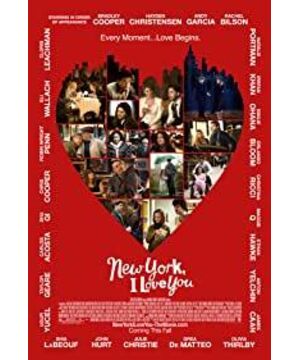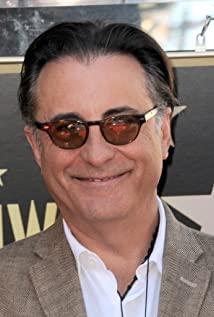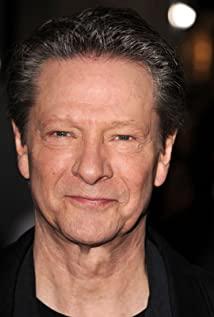Not a movie review, just a thought.
Getting up at seven in the morning and watching a movie is a bit of a luxury to be happy.
I like New York very much, and I also like the form of short films. Although less than 100 minutes is a bit too short for 12 stories, like a short story under 3,000 words. It is a love letter to the city, the taste of New York naturally permeates everywhere, countless classic buildings of internationalism, Central Park, various street scenes, small shops, all kinds of adventures at the crossroads, artists, yellow taxis, graffiti, rainy days and nights, Hesitant blue and countless red lights, cigarettes and desire. The music at the end of the transition swayes a kind of phantom of freedom, as if infinitely romantic. You can lightly joke with acquaintances at any time, or arbitrarily construct ambiguous language in front of strangers, redefine yourself, be sincere or act. There is room for a smile to meet.
It is always a coincidence that two strangers can squeeze into the same taxi from left and right and start a conversation, but the phantom is that the distance between people happens to be not too close or not far, completely strange and with The interest in saying something, at least not the exhausting rush, nor the overwhelmed indifference, and can deal with the occasional invasion indifferently.
The stories all revolve around an ingenious accident, which can either make people laugh or make people think deeply. The seventh and tenth stories have the biggest jumps.
The Seventh Story (Shekhar Kapur) The middle-aged Parisian singer came back to the hotel in New York and recalled the fall of the waiter when she was young. The reality and the past are intertwined, and she still can't sort out what happened in the past. painting. Once the two were lovers, tender respect, such as violets falling from the sky, accidental injury (symbol of nosebleed), and unbearable cold, and finally fell to their death. Bright and dizzying scenes, violets, nosebleeds, envelopes, white dresses and champagne, cold windows, etc., all have deep meanings, sketching a hidden past without pointing out the truth, leaving it to the audience to weave by themselves. Another very interesting point is the identity and image of the waiter. The waiter has a low status, and his body is arched and lame, but he also shows simplicity and responsibility with the environment. His eyes flash with embarrassed apology and infinite tenderness. This is a perfect lover. The image, especially the first love that corresponds to the disparity of status, emotionally warm and restrained, makes people think of Michael Fury, who was waiting in the rainy night in Joyce's "The Dead" and finally died of illness. The eyes of the actor (Shia LaBeouf) are so beautiful and heartbreaking that sincerity and tenderness continue to emerge in the deep eye sockets of the thin face, other photos of finding him seem mediocre, but the film is really charming.
The tenth story (Yvan Attal) is also more obscure. A middle-aged couple encounters emotional obstacles, their passion fades and it is difficult to see each other's charm and characteristics, so the two pretend to be strangers and light cigarettes on the street to flirt. Smartly withdrawing from the status of husband and wife, taking a step back and watching, rather than deliberately complaining, so those full of temptation and mystery reappear, and the two seem to find new passion in the restaurant date.
View more about New York, I Love You reviews











